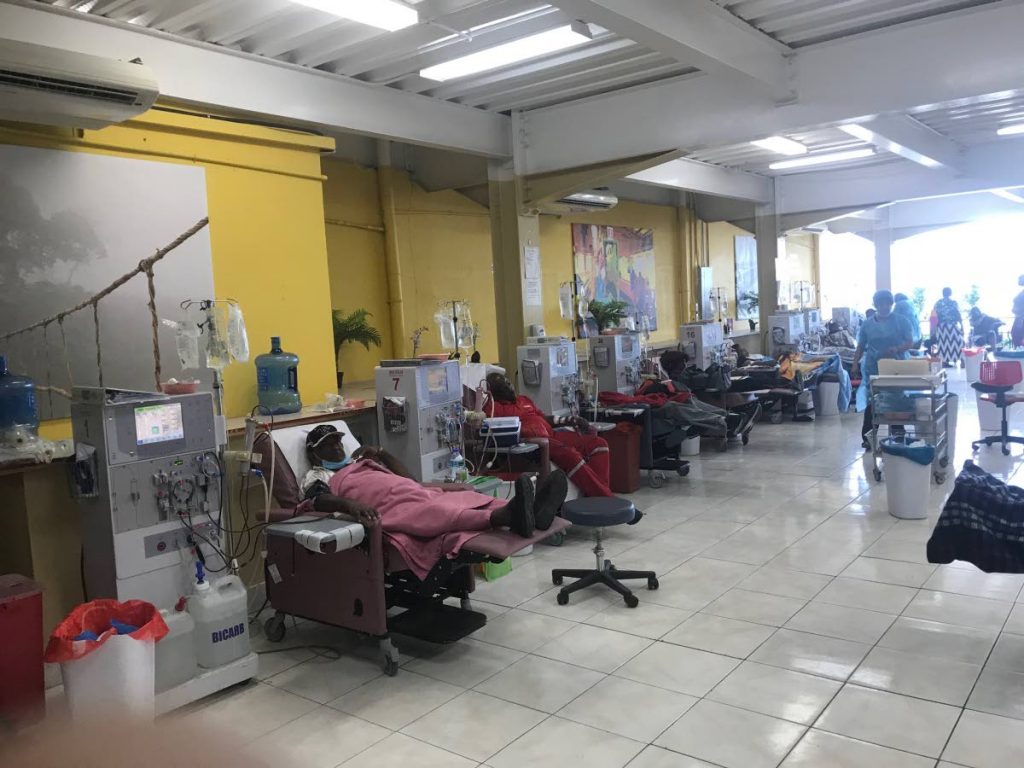Brothers raise kidney disease awareness

Creating an awareness of chronic kidney disease and educating individuals on preventative measures is the aim of brothers Kevin and Jeremy Ramgoolie, owners of Kidney Disease Rehab (KDR) Medical Care Ltd.
“What propelled us to open such an institution was, two years ago, after both of our grandmothers died from the disease,” Kevin Ramgoolie told Newsday. During their grandmothers’ period of illness the brothers found out about the prevalence of the disease in TT and decided to do something about the lack of awareness. “We felt the illness needed greater focus, as not too much care and attention was given to it, and with the lack of education about it not many people were aware of it.”
According to statistics from the Institute for Health Metrics and Evaluation (2016), between 2005 to 2016, chronic kidney disease (CKD) has remained as one of the top four causes of death, along with heart disease, diabetes and cerebrovascular disease, and among the top ten cause factors for premature death within TT.
The Mayo Clinic describes CKD, also called chronic kidney failure, as the gradual loss of kidney function. The function of the kidneys is to filter wastes and excess fluids from the blood, which are then excreted in the urine. In advanced stage CKD, dangerous levels of fluid, electrolytes and wastes usually builds up in the body. Because kidney damage progresses slowly signs and symptoms may not become apparent until the kidney function is significantly impaired.
They may include:
Nausea and vomiting
High blood pressure
Loss of appetite
Swelling of feet and ankles
Fatigue and weakness
Sleep problems
Changes in how much you urinate
Decreased mental sharpness
Muscle twitches and cramps
Persistent itching
End-stage kidney failure is fatal without a kidney transplant or dialysis.
“Dialysis allows them to continue living, as it keeps their body in balance by removing waste, salt and extra water to prevent them from building up in the body, keeping a safe level of certain chemicals in their blood, such as potassium, sodium and bicarbonate and helping to control blood pressure. The majority of our patients receive a better quality of care after dialysis, as some of those who were in wheel chairs are able to walk, while some who were unable to have a job from before were able to restart working,” he said.

Although the brothers don’t have a medical background, they did a lot of research on the disease and employed the necessary staff to work at their facility. “All of KDR’s staff are trained professionals in their respective fields, and who are experienced in dealing with dialysis patients.
“Staff are also engaged in continuous training to provide the best progressive care to the patients. The medical director Dr. Shaun Lynch is one of the top nephrologists in Trinidad, and we have four head nurses of over 50 years of experience among them,” as well as a medical social worker.
Ramgoolie said for better personal kidney care, patients first need to understand the disease, check their lifestyles and then take care of themselves. But they will need guidance and support.
“We look at patients’ needs beyond dialysis. There are patients who suffer all sorts of problems hence the reason for the social worker. Patients go through so many things that impact on their illnesses and the social worker is able to oversee a lot of those ‘real’ issues faced by dialysis patients and their relatives, thereby we offer marriage and family counselling, advice for domestic violence patients, grief and loss counselling, and counselling on managing with life and the diseases.
“We also focus on prolonging the life of our patients, while promoting preventative measures to them, their families/care-givers and staff.
“KDR will soon extend to communities through school programmes at primary, secondary and tertiary levels, as well as partnering with NGOs to spread awareness.”
He said KDR also partners with NGOs and foundations that deals with diseases such as lupus, diabetes, multiple sclerosis, and is affiliated with like-minded foreign entities foster support for their patients. “Our purpose for partnering with NGOs is mainly for the patient care outside of dialysis, which the patient doesn’t pay for, hence considered charity.”
He said the Chauganas-based KDR treats between 200-300 patients annually.


Comments
"Brothers raise kidney disease awareness"